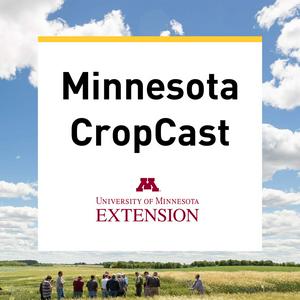Dry Beans Acreage Increasing in Minnesota as an Alternative Crop
In 1960, the number of farmers raising dry beans in Minnesota and North Dakota could be counted in single digits. The 2025 USDA Dry Bean Planting report showed 320,000 acres (22% of US production) in Minnesota and 630,000 acres (43% of US production) in North Dakota, thus placing Minnesota in 2nd place in US production ahead of Michigan and several other states. In this episode Dave Nicolai and Seth Naeve chat with Minnesota Independent Crop Consultant, Darrol Ike and Mitch Coulter, Northarvest Bean Growers Association Executive Director, about the production and market expansion of dry beans in Minnesota. Farmers in the Northarvest (Minnesota and North Dakota) region grow a wide range of dry bean types including pinto, navy, black, dark red kidney, light red kidney, white kidney, Great Northern, pink, small red, and cranberry beans. Darrol reviewes some best management practices of successful dry bean growers concerning planting dates, populations, weed control and crop inputs. Mitch Coulter discusses dry bean markets, research, uses, exports and the increasing acreage for specific varieties of dry beans. Mitch also comments on legislative efforts to improve the usage and production of dry beans. Additional dry bean resources can be found at the Northarvest Bean Institute Website- https://beaninstitute.com/ and Northarvest Bean Grower Magazine which includes the annual Research Publication: https://northarvestbean.org/beangrower-magazine/


